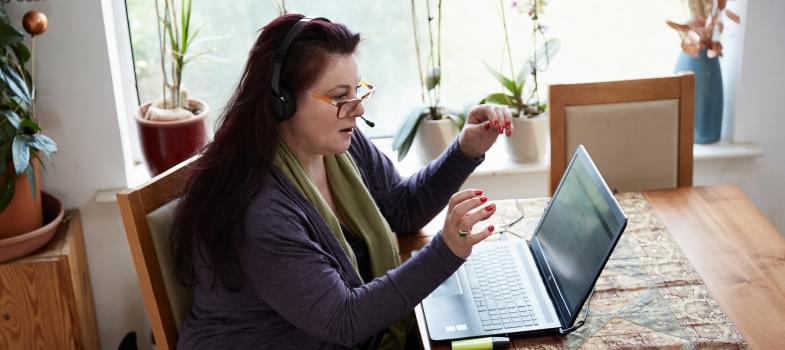1.5 Who are our tutors?
Our tutors come from diverse backgrounds and have different motivations to become a tutor:
- You may be a postgraduate student or a postdoctoral researcher looking for teaching experience
- You could be a recent OU graduate looking for teaching experience or looking to give back something to the OU
- You might be a Further Education teacher wanting to branch out into distance teaching by correspondence in Higher Education
- You may be a technical professional progressing in your computing or IT career, wanting to give something back to the community by teaching the next generation of computing and IT professionals
- You can even make being an OU tutor your career.
Being an OU tutor is flexible and family-friendly because tutors are mainly teaching at a distance and they can manage their own working pattern. This means that the role would also suit carers and returners to work or end-of-career professionals seeking a retirement role.
Tutors are typically given a lot of freedom in how to manage their time best to support their students. This allows for the fact that the different regions and nations of the UK are very different and that students studying at the OU often have different expectations and needs from their education.
This is what some tutors have said about the job. Note that they use the terms “tutor” and “AL” (Associate Lecturer) interchangeably:
"OU teaching is so different from what I do by day, it is almost addictive. The thrill you have when a student has grasped what you have said in a tutorial, and you see it come back to you in an assignment - you know you really have imparted more than just the text, but a real understanding which can be applied to everyday life."
“Being an AL brings flexibility to my life. There are times when I am busy and must concentrate on the matters at hand, but there are plenty of others where I can be free and mobile if I wish. I don't have to work from home all the time, with a laptop and the right setup I can be free as a bird. Organisation is up to me, the motivations come from within, teaching is good and there are plenty of examples where I can see that I have made a genuine difference to people's lives.
As an AL I teach a broad church in my field, and I get a chance to see students develop as they progress. Colleagues are invariably helpful and friendly, a shared approach to teaching informs practice, and makes us part of a community. I love not having to commute and the feeling that instead of my life being controlled by the clock, I can make choices about how and where I work.”
"It is a marvellous job for someone who is disabled. The OU is very open access to ALs as well as students. At first, when I was trying to build up my private tuition from home, the OU work I had was my anchor, it gave me stability. Also, the OU gets quite a lot of disabled students, and I think it must be good for them to see a disabled tutor."
Throughout this course you will watch several videos of OU tutors discussing their roles and the various aspects of being an OU tutor.
In this first video, Chris, Tammy, Charly, Prince, Joan and Colin introduce themselves and say a little bit about their background.

Transcript
Tutor support
Tutors support their students in two ways:
- Academically, helping them understand and learn the module material.
- Pastorally, helping them develop their organisational and study skills.
1.4 Ethos of the OU


